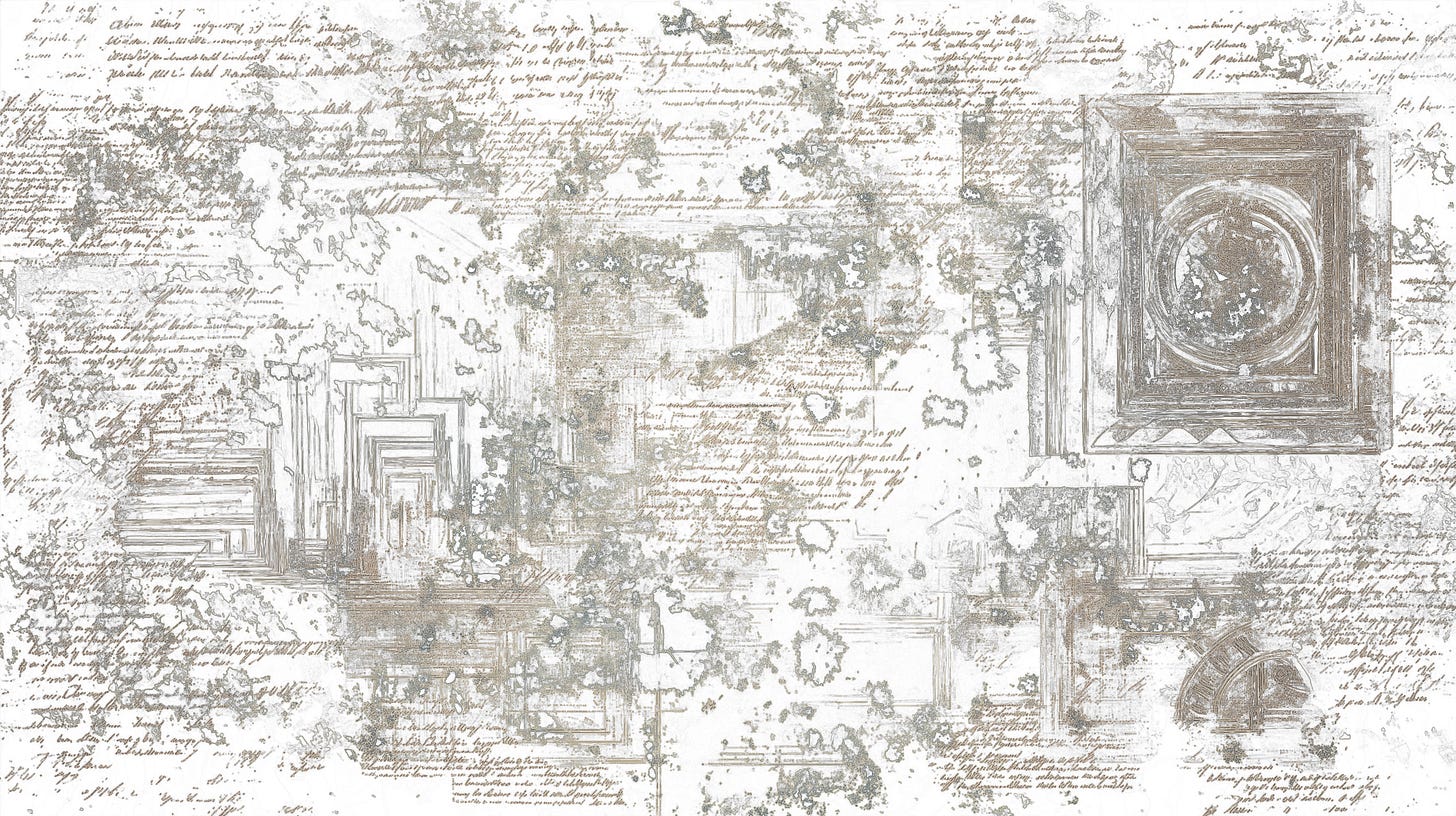Preamble: Letters from the Department of Intellectual Craft
What does it mean to be an academic in an age of AI when who you are depends so much on how you use your mind? Over the next few days I'll be serializing a short story that tackles this head-on.
The complete Letters from the Department of Intellectual Craft:
Preamble • Part 1 • Part 2 • Part 3 • Postscript
For people who follow my work, it’ll come as no surprise that I’m grappling deeply with how AI challenges my identity as a professor and an academic—especially as it becomes increasingly adept at emulating the things that make me who I am.1
I suspect I’m not alone here. For anyone whose identity is wrapped up in the art and craft of what they do, cutting-edge artificial intelligence presents a contradictory maelstrom of challenges and opportunities as it simultaneously opens up amazing possibilities while threatening things that fundamentally define us.
And no-where is this more apparent than where your ability to think and reason, your intellect, your intelligence—the very things that AI sets out to excel at—form the deepest foundations of who you are.
Because of this, when I was invited earlier this year to write a chapter around AI for a new edited book on academic culture in the year 2100, I embraced it as an opportunity to explore, extend, and crystallize my own thinking.2
And given the framing of the prompt, which was to write a book chapter from the perspective of the year 2100—a speculative future retrospective if you like—I decided to flex my inner-creative and use the medium of a short story.
It’s something I’ve wanted to do for as long as I can remember, but haven’t been brave enough to—it’s always tricky stepping out into fiction when you’re known for your non-fiction writing. But there are affordances in fiction that allow complex ideas to be explored with a nuance and sophistication that all too easily elude more literal pieces. And despite not grasping the creative writing nettle directly, my work and scholarship has been deeply engaged in using fiction to reveal and explore new insights and understanding for some years now.
What flipped the switch in this case was the context and the opportunity. The short story format provided the perfect medium to explore my evolving thinking in quite a nuanced and—as it turned out—unexpected way. And the context of writing from the perspective of 2100 gave me the permission I needed.
The result is an epistolary story that’s built around a one-way correspondence between the soon-to-retire Chair of the “Department of Intellectual Craft” in a fictitious university, and his university president—a correspondence that’s fueled by the double effrontery of him being ousted from his office by none other than the institution’s first tenured AI professor.
The department chair in this case has spent his academic career fighting against the incursion of AI into what he considers to be the sacrosanct domain of the craft of human intellect. And so to be ousted by the very thing he has been fighting against is anathema in the extreme.
That said, sharp-eyed academics will have already realized that the real affront here is not so much the AI, as it is being kicked out of his equally-sacrosanct office.
Even in a changing world, I suspect we’ll always be able to rely on the constancy of petty academic politics!
What follows is a hopefully unexpected exploration of what it might mean to thrive in an AI future as someone who deeply values their unaugmented human intelligence in what they do and who they are.
The story will be appearing in the book Academic Cultures: Perspectives from the Future, co-edited by Michael M. Crow and William Dabars, which is due to be published by Johns Hopkins University Press in 2026. However, given the current relevance of the ideas explored in it, both the editors and the publisher agreed to allow me to publish ahead of time here.
And so, over the next three days I’ll be publishing Letters from the Department of Intellectual Craft in three installments—on Monday, Tuesday, and Wednesday—with the postscript appearing next Sunday.
I hope you find some value in it, and even enjoy reading it. More than this though, I hope it sparks deeper thinking and broader conversations in an age where AI can increasingly emulate so much of what we thought defined who we are.
The complete Letters from the Department of Intellectual Craft:
Preamble • Part 1 • Part 2 • Part 3 • Postscript
As a starting point here, it’s worth checking out The Artisanal Intellectual in the Age of AI.
Interestingly, the invitation came and the chapter was written before I wrote AI and the Art of Being Human with Jeff Abbott—a book where we both lean heavily into using AI while critically examine what it means to be human in an age of AI.




Didn't expect this but 'flex my inner-creative' made me smile.
I love the framing of 'AI' as intellectual craft.